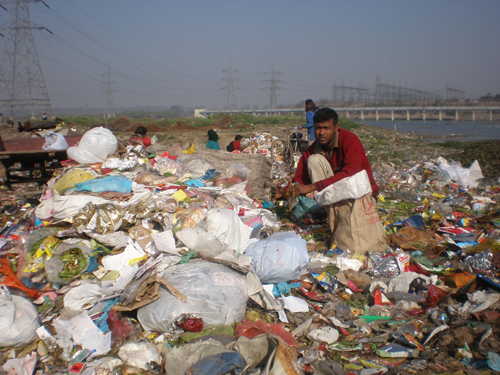Sugar for Ants II

Your responses are what keeps this blog going, thank you for sharing. Continuing on the governance issues for urban slums in Delhi on how to justify providing water sanitation etc to the existing Jhuggi Jhompdi (JJ) slums?
As you all have rightly pointed out the quality of life for a middle class in the city like Delhi is subsidized by people living in slums. They are ready to accept an inferior quality of life so that the middle class could have their service providing community, at a subsidized price.
Another argument is that JJ slum dwellers are not ‘paying’ any property tax or other municipal taxes. Let us look at this argument. Yes, but they are consumers and as such pay excise duty and sales tax on all the items they purchase and hence contribute to the economy directly.
The third argument is they are not ‘legitimate dwellers’ at the place of residence. They have no formal title and hence no legal rights to the lands they occupy or the houses they live in. The dwelling units they live in do not conform to any standards, and even the people who live here change constantly over time. What does the word ‘legitimate’ mean? The Oxford dictionary defines it as: reasonable or acceptable. So a legitimate dweller is someone who is reasonable or acceptable. This we will agree. They are reasonable about their quality of life and accepting or putting up with it. Another meaning is allowed by law. So who is the law the Judiciary accepts their claim to quality of life. It has passed judgments from time to time supporting them and their right to clean environment. But the police or the municipal officials are not always reasonable or accepting.
Finally and most importantly, for our political system grants them legitimacy. These are legitimate citizens of the country with voting rights–voter ID cards whenever it is a recognized slum. It is the elected members to local municipal councils that put pressure to improve quality of life for the JJ slum residents through their own funds and pressure.
This view to look at JJ slum dwellers as illegal, illegitimate, encroacher on public open lands within city limits, is only one possible view about urban migrants. It stems from post- colonial policies that created borders, which often greatly interfered with the livelihood strategies of groups straddling different zones.
Another way to look at rural urban migrations that routinely cause slums or squatter settlements is to interpret it as a conscious decision by the migrant, as part of a livelihood strategy. This decision to relocate is one, among a portfolio of decisions for livelihood and survival by the migrant, whereby they retain their contact with the villages they come from, and strategically relocate to urban areas for a few decades, in order to improve their livelihood opportunities. This is a choice they make, and we can choose to respect it or not.




i like this picture very much its very nice picture